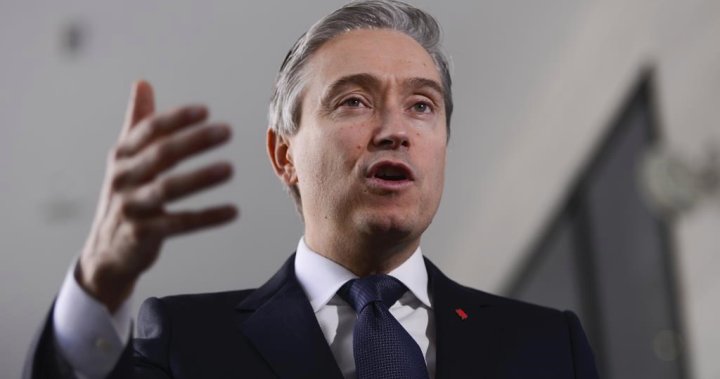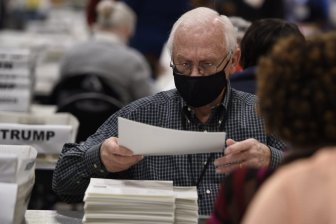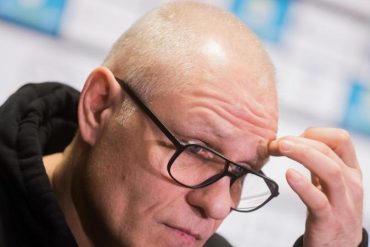Canada’s foreign minister on Monday reiterated the country’s concern about China’s persecution of ethnic Muslim Uighurs in its Xinjiang province, but stopped short of calling it a genocide as Canada’s ambassador to the United Nations did.
Speaking to reporters after a meeting with the federal cabinet in Ottawa, François-Philippe Champagne said Canada is “gravely concerned” about Beijing’s treatment of the ethnic minority, pointing to past public statements about the issue.
“I have raised this issue both privately and publicly with the foreign minister of China, and I will continue to do so,” he said.
Last month a Canadian parliamentary subcommittee concluded in a report that China’s treatment of the Uighurs is a genocide. China rejected that report as baseless. Champagne did not reference that report in his remarks.
China has been accused of using forced birth control to limit Uighur births, and detention camps to indoctrinate the mostly-Muslim minority into mainstream Chinese society. Beijing has denied any wrongdoing, saying it is running a voluntary employment and language-training program.

On Sunday, Canada’s UN Ambassador Bob Rae told the CBC he has asked the UN Human Rights Council to investigate China’s treatment of the country’s Uighurs in Xinjiang.
He said an investigation was needed to gather evidence and confirm his belief that “there’s aspects of what the Chinese are doing that fits into the definition of genocide in the genocide convention.”
Chinese foreign ministry spokesman Zhao Lijian called Rae’s comments “ridiculous” on Monday, adding that Canada itself better fits the description of having perpetrated a genocide.
Zhao used a number of select statistics that suggest China’s Uighur population is growing at a faster rate than Canada’s population to mock Rae’s suggestions that the Uighurs are being persecuted.
“I would like to ask this ambassador, if his logic is plausible in finding out who best fits the label of genocide, it seems that it is not the Uighurs who are persecuted, but rather the people of Canada, am I right?” Zhao said.
However, Zhao’s statistics appear to have been incomplete or inaccurate and did not address a report by The Associated Press in June that birthrates have been dramatically cut in Uighur-dominated areas of Xinjiang.

When asked about Zhao’s comments, Champagne would only say that standing up for human rights is a key part of Canada’s foreign policy.
“We will stand up, we will speak up whenever we feel it is appropriate,” he said. “We have done that in respect to Xinjiang, we have done that in respect to Hong Kong more recently, and we will continue to do so.
“I think Canadians expect Canada to speak up and stand up for people, for liberty, for freedom, for democracy and for the respect of human rights.”
Canada was among 39 UN members who jointly criticized China for its treatment of the Uighurs last month. The countries have also demanded China allow independent investigators to visit Xinjiang and see situation for themselves.
—With files from the Canadian Press
© 2020 Global News, a division of Corus Entertainment Inc.

Devoted web advocate. Bacon scholar. Internet lover. Passionate twitteraholic. Unable to type with boxing gloves on. Lifelong beer fanatic.







